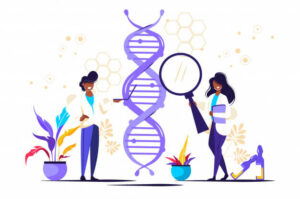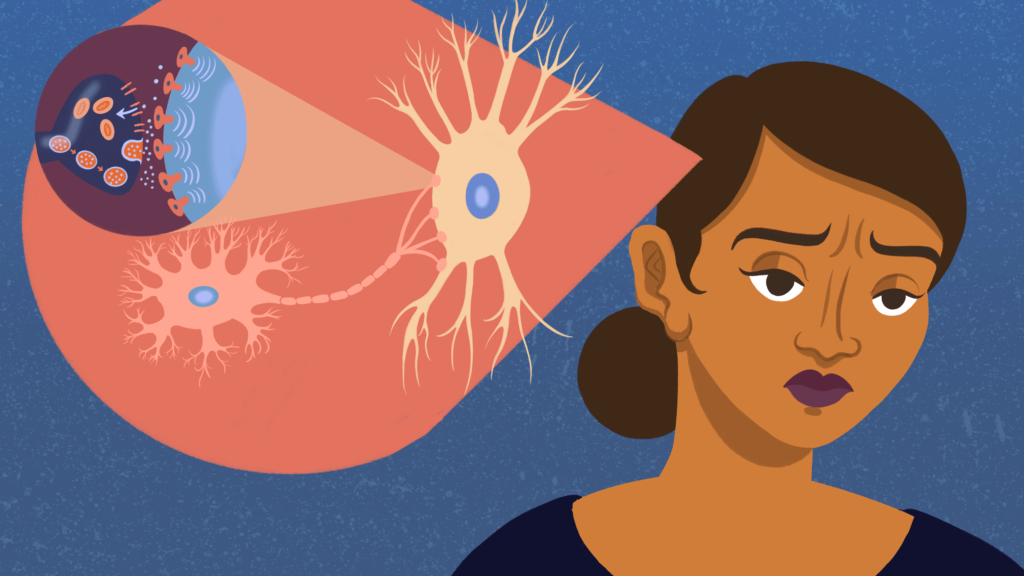Depression is a serious mental health condition that can impact people of all ages. While it is not always clear what causes depression, there is evidence to suggest that it may be partially hereditary. In this blog post, we will take a closer look at the science behind depression and inheritance. We will also discuss ways in which you can seek help if you or someone you know is struggling with depression.
Contents
What Is Depression Hereditary?

Depression hereditary means that the disorder can be passed down from parent to child. The symptoms of depression can vary greatly from person to person, but typically include persistent feelings of sadness, hopelessness, and worthlessness. Depression is one of the most common mental disorders, affecting more than 300 million people worldwide.
There are several different theories about what causes depression, but the most commonly accepted theory is that it is caused by a combination of genetic and environmental factors. While there is no single cause of depression, it is thought to be the result of an imbalance of chemicals in the brain. This chemical imbalance may be caused by a combination of genetic and environmental factors, such as stress or trauma.
How Genetic and Hereditary Different?
Genetic and Hereditary are different, but both words are used to describe having a predisposition for something.
When we say that something is genetic, we mean that it is passed down from our parents through our DNA. Hereditary refers to any trait or condition that is passed down from generation to generation in a family. So, all genetic traits are also hereditary, but not all hereditary traits are genetic.
For instance, hair color is an example of a trait that is determined by our DNA, and therefore it is genetic. If our parents have red hair, we are more likely to have red hair. However, not all traits that are passed down from our parents are genetic. For example, if your mother suffers from depression, you may be more likely to suffer from depression yourself. This does not mean that depression is genetic, but rather that it is hereditary.
Hereditary conditions are often the result of a change, or mutation, in a gene. In some cases, these mutations are passed down from generation to generation. Other times, they occur spontaneously in an individual and can be passed on to his or her offspring.
Mutations that are passed down from generation to generation are more likely to be found in genes that are involved in the development of the nervous system, as well as genes that play a role in cell division. These mutations can cause changes in the structure and function of proteins, which can lead to the development of a hereditary condition.
Is Depression Genetic Or Hereditary?
There’s no one answer to this question as the causes of depression are complex and varied. However, research suggests that genetics may play a role in some cases of depression.
For example, studies have shown that people with certain genes are more likely to experience depression than those without these genes. Additionally, family history is also a risk factor for depression.
So, while there is no definitive answer as to whether or not depression is hereditary, the evidence does suggest that genetics may play a role in some cases. If you have a family history of depression, it may be worth talking to your doctor about your risk factors.
Depression is a complex condition, and there is still much we don’t understand about it. However, the evidence does suggest that there may be a genetic component to it.
Can Hereditary Depression be Cured?
Hereditary depression is a cure or not is still an ongoing debate in the medical community. Some experts believe that it can be cured while some think that it cannot be cured.
The main reason why people think that hereditary depression can be cured is that there are treatments available that can help people with this condition. In a study done in 2017, it was found that people who underwent cognitive behavioral therapy had a significantly lower risk of relapse than those who did not receive any treatment.
Other experts, however, believe that hereditary depression cannot be cured. This is because the cause of this condition is still unknown. Additionally, people who have this condition often experience relapses even after they have received treatment.
At the moment, there is no clear consensus on whether hereditary depression can be cured. However, the available evidence suggests that it is possible to manage this condition with treatment. If you are struggling with hereditary depression, speak to a mental health professional about the available options.
How to Diagnose Hereditary Depression?
To diagnose hereditary depression, your doctor will likely:
- Ask about your family history of depression: He or she will want to know if anyone in your family has had depression and, if so, how severe it was.
- Review your signs and symptoms: Be prepared to discuss how long you’ve been feeling down, how severe your symptoms are, and whether you have any other health conditions.
- Conduct a physical exam: This can help rule out other possible causes of your symptoms, such as thyroid problems.
- Order lab tests: These might include a complete blood count (CBC) and tests to evaluate how well your thyroid and adrenal glands are functioning.
- Refer you to a mental health specialist: In some cases, your doctor may refer you to a psychiatrist or other mental health provider for an evaluation.
Many other factors contribute to the development of depression, including:
- Own personal history
- Environment
- Genes
- Brain chemistry
- Life events (such as trauma or loss)
If you think you may be depressed, talk to your doctor. He or she can evaluate your symptoms and help you get the treatment you need.
How Can You Manage It?

You can manage hereditary depression with the help of a doctor, therapist, and/or medication.
There is no one-size-fits-all approach to managing depression. The best treatment plan for you will depend on the severity of your symptoms and other factors, such as your medical history.
Your doctor may recommend:
- Therapy: Cognitive behavioral therapy (CBT) is a type of therapy that can be particularly helpful for managing depression. CBT helps you identify and change negative thinking patterns that may contribute to your condition.
- Medication: If your symptoms are severe, your doctor may recommend medication. Antidepressants are the most commonly prescribed type of medication for depression.
- Lifestyle changes: Making certain lifestyle changes, such as getting regular exercise and eating a healthy diet, can also help manage depression.
- Getting enough nutrients: You may want to consider taking a vitamin D supplement, as research suggests that vitamin D deficiency may be linked to depression. Omega-Three fatty acids are also thought to play a role in brain health and may help relieve symptoms of depression.
- Avoid alcohol and drugs: Alcohol and recreational drugs can make depression worse. It can create panic attacks.
- Prioritize healthy relations: Spending time with loved ones, close friends, and people who make you laugh can help relieve symptoms of depression. Connecting with others can also help you feel less alone.
Depression is a serious medical condition, but it is treatable. If you have hereditary depression, it’s important to get treatment. With the right care, you can manage your symptoms and live a full and healthy life.
Conclusion
Depression is a complex condition that has many possible causes. While depression can run in families, it isn’t always hereditary. Many other factors, such as environment and life events, can also play a role in the development of depression. If you’re concerned about your risk of depression, talk to your doctor. They can help you understand your risks and develop a plan for treatment or prevention.
While there is no one answer to whether or not depression is hereditary, the science does suggest that it can be a factor in some cases. If you have a family history of depression, it’s important to be aware of your risks and take steps to protect your mental health.
For further information and suggestions, please contact Therapy Mantra. We have a team of expert therapists that can help you overcome this problem. Get in touch with us right away to learn more about our services. You may also make an online therapy session or download our free Android or iOS app.


